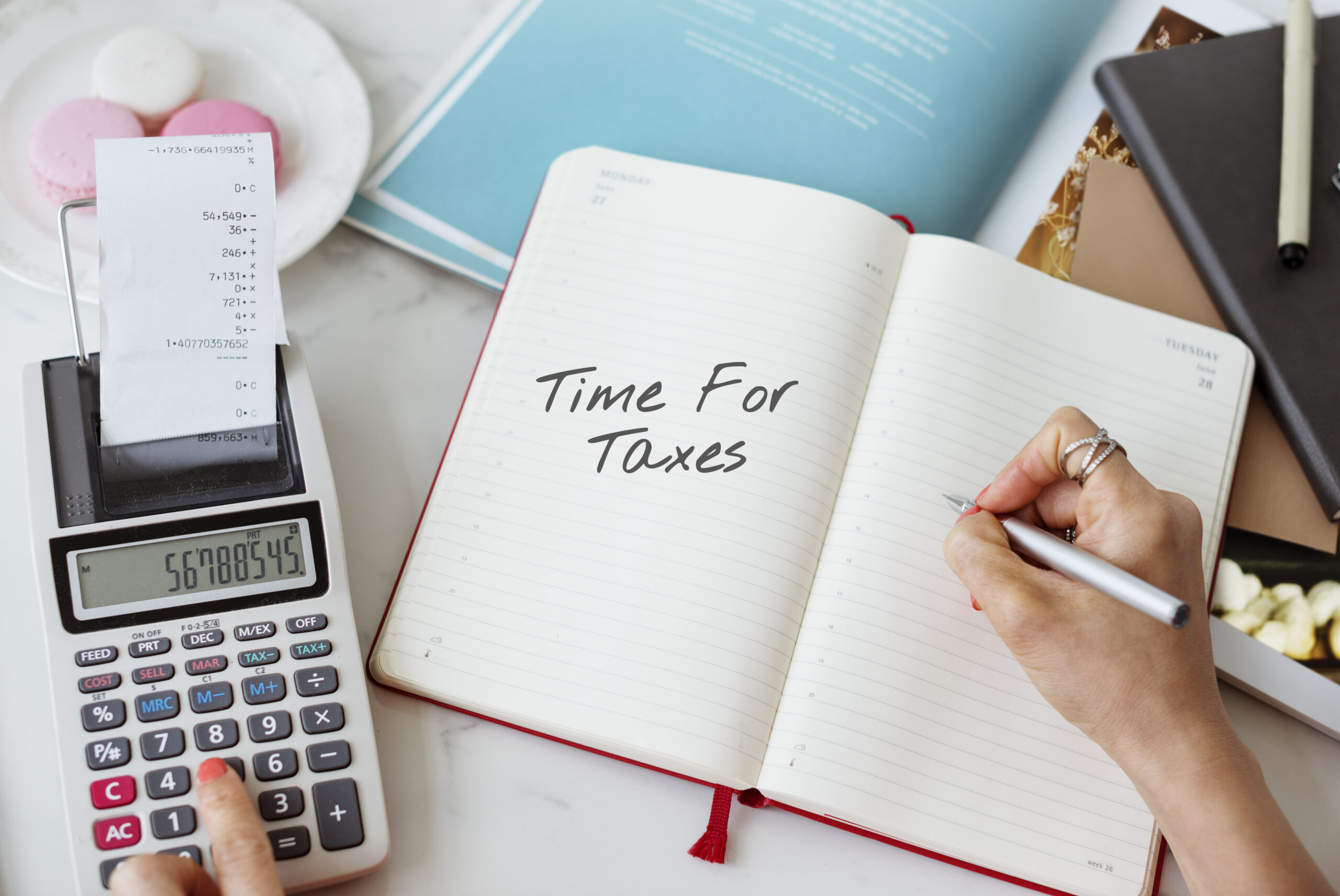Tax season is upon us once again, and while it may seem daunting, being prepared can transform what is often considered a stressful period into an opportunity for financial clarity and smart planning.
Whether you’re an individual taxpayer, a freelancer, or a business owner, knowing the latest updates, organizing your documents, and understanding the new regulations for 2025 can save you time, money, and headaches.
In this comprehensive guide, we’ll walk you through everything you need to know to confidently navigate this tax season from gathering your paperwork to leveraging digital tools and understanding crucial changes in tax law. So, grab a cup of coffee and let’s dive into the ultimate tax preparation tips for 2025!

1. Start Early: The Key to Stress-Free Tax Preparation
One of the most effective ways to ensure a smooth tax season is to start early. Rather than waiting until the final days before filing, begin organizing your financial records and familiarizing yourself with any changes in tax legislation as soon as possible. Here’s how you can get a head start:
- Create a Tax Calendar: Mark all important deadlines, including when tax forms become available, filing deadlines, and any other relevant dates. Consider using a digital calendar that syncs across your devices.
- Gather Documents Regularly: Instead of saving all receipts and invoices for the end of the year, collect them monthly. This habit makes the end-of-year process far less overwhelming.
- Review Previous Returns: Look back at last year’s tax return to remind yourself of deductions you claimed or errors that need correction. This reflective practice can guide your organization for 2025.
- Plan for New Tax Laws: Stay updated on changes in tax regulations that might affect your situation. The IRS and local tax authorities typically provide early guidance on any major modifications.
Starting early not only prevents last-minute chaos but also gives you time to seek advice if needed. If you’re unfamiliar with new changes or have complex financial situations, consider scheduling an appointment with a tax professional early in the year.
2. Organize Your Financial Documents
Good organization is the foundation of effective tax preparation. With the plethora of documents involved in the filing process, having a systematic approach can save you hours of frustration. Here are some tips on keeping your financial records in order:

A. Create a Filing System
- Digital vs. Paper: Decide whether you will keep digital records, physical copies, or both. Many modern taxpayers prefer digital records due to their ease of access and storage. Consider using cloud storage solutions with proper encryption for sensitive data.
- Categorize Documents: Organize your receipts, invoices, bank statements, and other records into categories such as income, expenses, medical bills, charitable donations, and investment reports.
- Backup Regularly: If you are using digital records, ensure that you have regular backups. This can be on an external hard drive or a secure cloud service.
B. Essential Documents Checklist
- Income Documentation: W-2s, 1099s, bank interest statements, dividend reports, and any freelance or gig work records.
- Expense Receipts: Receipts for deductible expenses like business expenses, medical costs, educational expenses, and charitable donations.
- Investment Records: Documentation of stock sales, mutual fund transactions, and other investment activities.
- Loan and Mortgage Information: Interest statements, property tax records, and documentation of any refinancing.
- Other Relevant Papers: Any correspondence with the IRS, previous tax returns, and records of estimated tax payments.
By developing a systematic approach to your documents, you’ll be in a much better position to file accurately and quickly.
3. Stay Informed on 2025 Tax Law Changes
Every tax season comes with its own set of challenges, and 2025 is no exception. Recent updates in tax regulations could impact deductions, credits, and even filing processes. Here are some points to consider:
A. New Deductions and Credits
- Green Energy Incentives: With increased emphasis on sustainability, there are new credits for energy-efficient home improvements and electric vehicle purchases.
- Education Credits: Changes to education-related tax credits may benefit those paying for college tuition or other educational expenses.
- Health Care Adjustments: Review any updates to health care credits, especially if you’ve incurred high medical expenses this year.
B. Changes in Income Reporting
- Gig Economy: With more individuals participating in freelance and gig work, ensure you understand the reporting requirements for multiple streams of income.
- Digital Transactions: The rise of cryptocurrency and digital asset transactions may affect how you report income or gains.
C. Tax Brackets and Rates
Be sure to check the updated tax brackets for 2025. Even minor adjustments in rates can significantly impact your tax liability. The IRS website and reputable financial news outlets typically provide detailed summaries of these changes.
Staying informed about these changes is crucial. Consider subscribing to newsletters from trusted financial advisors or the IRS to receive timely updates.
4. Leverage Digital Tools and Resources
Technology has transformed the way we approach tax preparation. From online filing systems to smartphone apps that track expenses in real time, there are numerous digital tools available to help you manage your tax documents efficiently.
A. Popular Tax Software Options
- TurboTax: Known for its user-friendly interface, TurboTax is a popular choice among many taxpayers.
- H&R Block: Offers both online and in-person services, catering to those who prefer a hybrid approach.
- TaxAct: A cost-effective solution that doesn’t skimp on features.
- Free File Programs: For those with lower income levels, several free filing options are available through the IRS website.
B. Mobile Apps for Expense Tracking
Utilize apps like Expensify, Mint, or QuickBooks to keep track of your daily expenses and receipts. These apps can help you capture and categorize expenses on the go, ensuring you never miss a deductible expense.
C. Online Educational Resources
The internet is replete with resources—webinars, blogs, and tutorials—designed to help you understand the intricacies of tax law. Platforms like YouTube, Udemy, and even the IRS website offer educational content to different levels of tax expertise.
By integrating these digital tools into your preparation process, you can simplify the filing experience and reduce the risk of errors.
5. Understand the Importance of Professional Assistance
While many taxpayers successfully file their own returns, there are scenarios where professional help can be invaluable. Here’s when you might consider hiring a tax professional:

A. Complex Financial Situations
- Multiple Income Streams: If you have income from various sources such as freelancing, investments, or rental properties, a tax professional can help ensure all income is reported correctly.
- Significant Life Changes: Events such as marriage, divorce, or the birth of a child often complicate your tax situation.
- Business Ownership: If you own a small business, the additional complexities of business deductions, payroll taxes, and depreciation may warrant professional assistance.
B. Audit Support and Peace of Mind
Professional tax preparers can offer support in the event of an audit. Their expertise can help you navigate the complexities of the IRS process, reducing stress and potential liabilities.
C. Maximizing Deductions and Credits
A seasoned tax advisor can help identify deductions and credits that you might overlook. Their deep understanding of tax laws ensures that you take full advantage of any available benefits, potentially saving you money in the long run.
Even if you’re comfortable doing your own filing, consider consulting with a professional for a second opinion, especially if your financial situation has undergone significant changes in 2025.
6. Common Mistakes to Avoid During Tax Season
Even the most organized taxpayers can fall into common pitfalls. Awareness of these mistakes can help you sidestep them altogether:
A. Procrastination
Waiting until the last minute to organize your documents or file your return can lead to rushed decisions and errors. Start early to avoid unnecessary stress.
B. Inaccurate Record-Keeping
Misplacing receipts or failing to update your financial records regularly can result in missed deductions or inaccuracies on your tax return. Consistent organization is key.
C. Overlooking New Tax Law Changes
Tax laws are subject to change, and failing to stay updated can lead to errors in your filing. Regularly check for updates and consult reputable sources or professionals.
D. Not Reviewing Your Return
A thorough review of your completed return before submission can catch errors that might trigger audits or delays. Double-check all figures, personal information, and deductions.
E. Ignoring the Benefits of Digital Tools
Relying solely on manual methods when digital tools can automate many aspects of tax preparation might cause unnecessary work and increased error rates.
Avoiding these common mistakes is essential for a seamless tax season. A little extra attention to detail can make all the difference in ensuring your tax return is accurate and complete.
7. Special Considerations for Self-Employed and Freelancers
The tax obligations for self-employed individuals and freelancers can be particularly intricate. Here are some tips to navigate your unique challenges:
A. Maintain Detailed Expense Records
For freelancers and self-employed professionals, every expense could potentially be deductible. Keep track of:
- Office Supplies: From computers to stationery.
- Travel Expenses: Mileage, lodging, and meals when traveling for business.
- Home Office Deduction: If you work from home, ensure you understand the criteria and calculation methods.
B. Estimated Tax Payments
Self-employed individuals often need to make quarterly estimated tax payments. Failing to do so can result in penalties. Plan ahead by estimating your tax liability and scheduling payments throughout the year.
C. Use Specialized Software
There are accounting tools specifically designed for freelancers. Software like QuickBooks Self-Employed or FreshBooks can help streamline your record-keeping and expense tracking.
D. Seek Professional Advice
Due to the complexities involved, it might be beneficial for self-employed individuals to consult a tax professional who specializes in freelance or small business taxation.
By adopting these strategies, you can ensure that your tax return reflects all applicable deductions and credits, ultimately reducing your overall tax liability.
8. Tax Filing Deadlines and Important Dates for 2025
Staying on top of deadlines is crucial to avoiding late fees and penalties. Here’s a quick overview of the key dates you should mark on your calendar for 2025:

- January to March 2025: Begin gathering and organizing your financial documents. Many tax software platforms open for filing during this period.
- Mid-March 2025: Watch for any last-minute changes or updates from tax authorities regarding new laws or deadlines.
- April 15, 2025: This is the traditional tax filing deadline for most individuals. Ensure your return is filed, or submit a request for an extension if needed.
- Quarterly Estimated Payments: If you’re self-employed, remember to schedule your estimated tax payments in April, June, September, and January of the following year.
- October 15, 2025: The extended deadline for those who received an extension in April. Use this time wisely to complete your filing if needed.
Keeping these deadlines in mind—and setting reminders—will help you avoid the rush and potential penalties associated with late filings.
FAQs
Q1: Why is it important to start preparing for tax season early?
A: Starting early allows you to organize your documents, stay informed about new tax laws, and identify potential deductions and credits. It reduces the stress of last-minute filing and minimizes the risk of errors that could lead to audits or penalties.
Q2: What documents should I gather for my tax return?
A: Essential documents include W-2s, 1099s, receipts for deductible expenses, bank statements, investment records, and any relevant documentation regarding business expenses or home office deductions. A well-organized filing system—whether digital or physical—can help streamline the process.
Q3: How do new tax laws affect my filing for 2025?
A: Tax laws can change significantly from year to year. For 2025, you may see updates related to green energy credits, education-related deductions, and adjustments to income reporting for gig workers. Staying updated through reliable sources and consulting a tax professional can ensure you comply with all new regulations.
Q4: What are some digital tools that can help with tax preparation?
A: Popular tax software options include TurboTax, H&R Block, and TaxAct. Additionally, mobile apps like Expensify, Mint, and QuickBooks can help track expenses in real time. These tools are designed to make tax preparation more efficient and less error-prone.
Q5: When should self-employed individuals make estimated tax payments?
A: Self-employed individuals should make quarterly estimated tax payments—typically in April, June, September, and January of the following year. This helps avoid penalties for underpayment and ensures that your tax liability is spread evenly throughout the year.
Q6: Do I really need a tax professional, or can I file my own taxes?
A: While many individuals can successfully file their own taxes using online software, those with complex financial situations, multiple income streams, or significant deductions may benefit from the expertise of a tax professional. Even if you choose to file independently, a consultation can provide valuable insights and peace of mind.
Q7: What are some common mistakes to avoid during tax season?
A: Common mistakes include procrastination, inaccurate record-keeping, overlooking recent tax law changes, and failing to review your return before submission. Ensuring proper organization and taking time to verify your information can help you avoid these pitfalls.
Conclusion
Navigating tax season doesn’t have to be a nerve-wracking experience. With careful planning, timely organization, and a proactive approach to new tax regulations, you can set yourself up for success in 2025. Remember, starting early is key: by maintaining organized records, leveraging digital tools, and staying informed on the latest tax law changes, you’ll be well-prepared to tackle any challenges that come your way.


